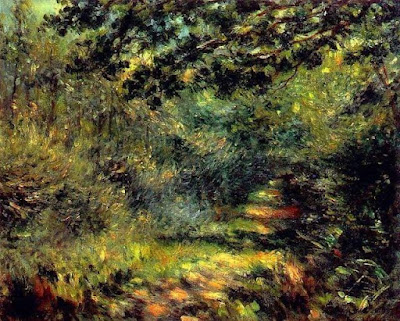But not so many times we can afford
To hustle past. Let's promise each other --
Never commit the sin of being bored.
Besides, so much has changed in just a year.
The sun-rustled air seems even clearer.
The pattern of the leaves left in the trees
(Yes, the postcard days ended yesterday),
Suggests paragraphs full of ideas,
Things we think but never think to say.
The colors play the least part of the scene,
And we must grant each leaf its final bow.
If we could stay to watch the last careen
To the ground, we might settle then at Now.















